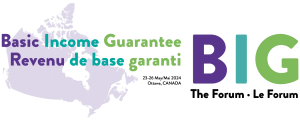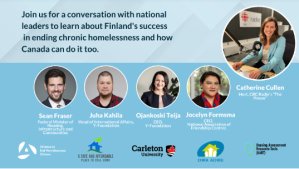The ideal and ongoing efforts to move government policy towards the principles of Basic Income to address poverty and the social determinants of health will be refocusing here in Ottawa on how to further advance what many of us believe would be a significant shift, with its focus on a whole population approach.
…A basic income is an unconditional cash transfer from government to individuals
to enable everyone to meet their basic needs, participate in society and live
with dignity, regardless of work status….Click to access Basic_Income-_Some_Policy_Options_for_Canada-Summary.pdf
The registration and program can be found at https://forum2024.ca/program/













